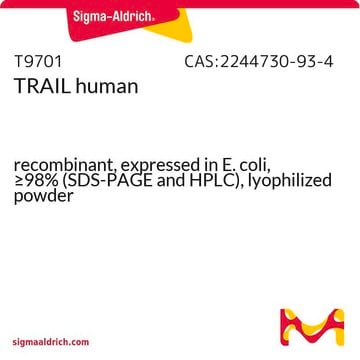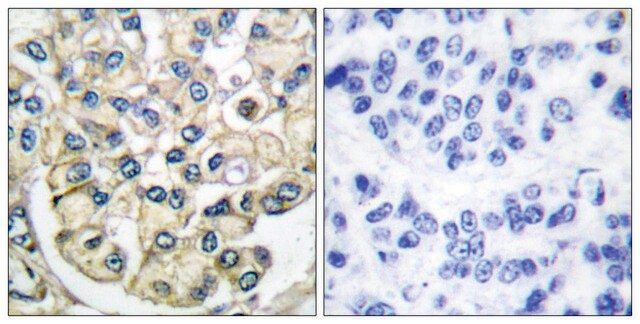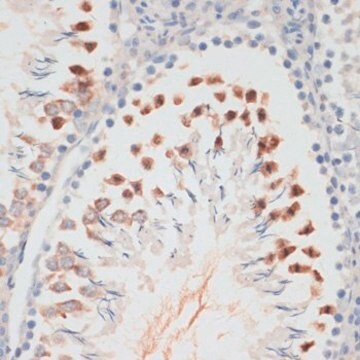K4760
Anti-Keratinocyte Growth Factor antibody produced in goat
affinity isolated antibody, lyophilized powder
Synonym(s):
Anti-FGF-7, Anti-KGF
About This Item
Recommended Products
biological source
goat
conjugate
unconjugated
antibody form
affinity isolated antibody
antibody product type
primary antibodies
clone
polyclonal
form
lyophilized powder
species reactivity
human
technique(s)
immunohistochemistry (formalin-fixed, paraffin-embedded sections): 15 μg/mL
indirect ELISA: 0.5-1 μg/mL
neutralization: suitable
western blot: 0.1-0.2 μg/mL
UniProt accession no.
storage temp.
−20°C
Gene Information
human ... FGF7(2252)
General description
Anti-Keratinocyte Growth Factor recognizes human FGF-7. This antibody shows less than 20% cross-reactivity with human FGF-9 and less than 10% cross-reactivity with human FGF-4.
Immunogen
Application
Physical form
Disclaimer
Not finding the right product?
Try our Product Selector Tool.
Storage Class
13 - Non Combustible Solids
wgk_germany
WGK 3
flash_point_f
Not applicable
flash_point_c
Not applicable
ppe
Eyeshields, Gloves, type N95 (US)
Choose from one of the most recent versions:
Certificates of Analysis (COA)
Don't see the Right Version?
If you require a particular version, you can look up a specific certificate by the Lot or Batch number.
Already Own This Product?
Find documentation for the products that you have recently purchased in the Document Library.
Our team of scientists has experience in all areas of research including Life Science, Material Science, Chemical Synthesis, Chromatography, Analytical and many others.
Contact Technical Service








